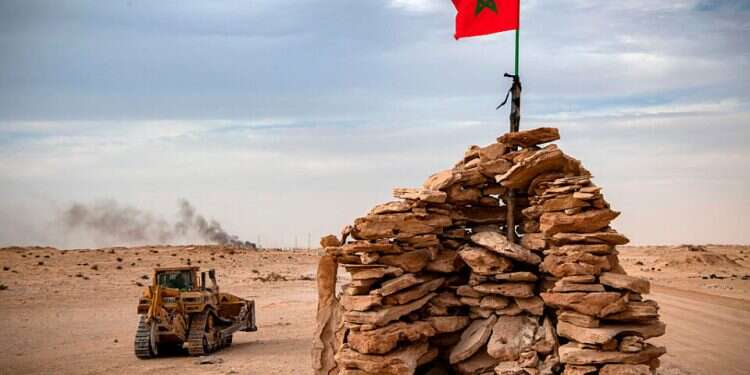Today's summit of Arab foreign leaders at Kibbutz Sde Boker in the Negev desert, aspires to project a united front against Iran. Apart from the threat of Iran's nuclear program, many countries in the Middle East – including Israel – are grappling with terrorism perpetrated by militias and groups that Iran arms and funds.
Follow Israel Hayom on Facebook, Twitter, and Instagram
On Friday, the Houthis in Yemen attacked Saudi oil facilities, causing global oil prices to spike. But if the ties between Israel and the Gulf states when it comes to the Iranian threat were obvious, Morocco's participation in the summit – which was held in a country thousands of kilometers away – was less obvious.
In the days of the Iranian Shah Reza Pahlavi, ties between Morocco and Iran flourished. Both countries were led by pro-western monarchs, who had cordial relations with the US. But in 1979, after the Islamic Revolution, relations between Tehran and Rabat began to sour. Moroccan King Hassan II condemned the religious leaders who seized power in Iran and even hosted the exiled shah.
In the 1980s, relations between the two countries worsened considerably when Tehran recognized the demand by the Polisario Front to establish a separate state in Western Sahara. Morocco claims sovereignty over this region and is offering autonomy, while the Polisario Front is fighting to found a separate country. In 2020, the US recognized Western Sahara as Moroccan in exchange for Morocco renewing relations with Israel.
There is also ethnic strife between Iran and Morocco. The ayatollahs saw themselves as leaders of Shiite Islam, the kings of Morocco see themselves as leaders of Sunni Islam. It's no coincidence that in 2009, Morocco expressed solidarity with Bahrain when high-ranking Iranian officials were treating the country as another Iranian province. Rabat event accused Tehran of "missionary" work through its embassy, with indirect support from the Polisario Front.
In 2014, Morocco and Iran renewed ties and a year later opened embassies. Still, the warmth was temporary, and Morocco again cut ties with Iran on May 1, 2018, closing the Iranian embassy in Rabat and expelling the ambassador. This time, the crisis developed mainly because Morocco was accusing Iran of supporting the Polisario Front in Western Sahara. Moroccan Foreign Minister Nasser Bourita, who is attending the summit in Israel, claimed at the time that the pro-Iranian Hezbollah terrorist organization was providing training and weapons to the Polisario Front via the embassy in Algeria.
Just recently, the Arab League foreign ministers council attacked Iran for what they described as "armament of isolationist elements that threaten Morocco's security, stability, and territorial integrity." The council expressed solidarity with Morocco in its battle against intervention by the Iranian regime and its ally, Hezbollah, in domestic matters.
The council, which was led by Saudi Arabia and whose members include Bahrain, Egypt, and the United Arab Emirates, stressed that "these dangerous acts are the latest in the Iranian regime's path toward destabilizing regional security and stability."
Subscribe to Israel Hayom's daily newsletter and never miss our top stories!




